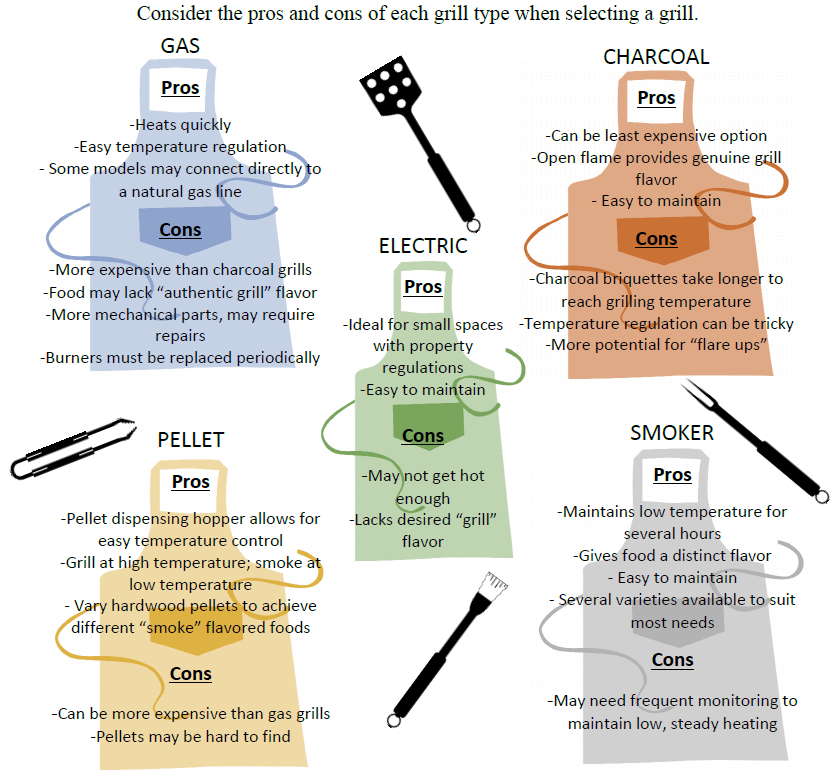JOHNSTON: Choosing a grill to enjoy this summer
Published 9:49 am Wednesday, June 24, 2020

- Shonda Johnston is the Clark County Extension agent for family and consumer sciences.
|
Getting your Trinity Audio player ready...
|
As we come to terms with the idea that many of the things we would normally be doing during the summer will be different, one thing we can hold on to is outdoor grilling.
I love all things grilled: hamburgers, hot dogs, chicken and even veggies. But grilling is a type of cooking that takes lots of practice, so do not be discouraged if your first attempts at grilling result in burnt burgers or undercooked chicken.
Keep in mind that successful grilling is all about “responsive cooking.” You should be able to easily move the food to different areas on the cooking grate for different heat exposure and have ways to control the airflow or temperature. The Extension Office has a few good recipes using the grill too, so feel free to reach out for those.
Something that is often a struggle is deciding what kind of grill you should get to meet your outdoor cooking needs.
UK’s Family and Consumer Sciences Senior Extension Associate for Clothing, Textiles and Household Equipment Jeanne Badgett has put together some great information for understanding the difference between grills and how to choose the best one for you needs.
She suggests considering these factors when selecting a grill:
— Budget: How much do you want to spend?
— Cooking capacity: Will you be cooking for just a few people or do you want to be able to grill large amounts all at once?
— Cooking method: Understand the difference between grilling, barbecuing and smoking; and know which equipment is best for your method.
— Space: How much room do you have for your grill?
All grills have different features and cooking methods to consider that may impact what you choose.
Remember that a more expensive grill with numerous accessories does not always mean it will perform better.
Here are some general descriptions of the types of grills that are out there.

Gas grill
Gas grills heat up quickly and usually have easy-to-control temperature regulation.
They are primarily referred to by the number of burners.
Find out if you can control the burners separately for indirect heat. A burner’s heat output is measured in BTU’s (British Thermal Units).
Check to see if the burners are shielded from grease drips to prevent flare-ups.
Electric ignitors are usually more reliable than push-button or rotary ignitors.
Charcoal grill
Charcoal briquettes take longer to heat, and temperature regulation can be tricky.
Consider using a “chimney starter” to keep your charcoal together when lighting.
A grate that is hinged or removable in sections to allow for the addition of charcoal during cooking is ideal.
Make sure there is adequate space beneath the cooking grate to allow for enough charcoal.
The grate may be adjustable to control the heat exposure. Check for a sturdy ash catcher tray or bucket.
Pellet grill
Instead of charcoal briquettes, pellet grills burn small, compressed pellets made from wood scraps.
The variety of hardwoods used in the pellets offer different “flavors” that can transfer to food.
An attached bin called a “hopper” dispenses pellets at a controlled rate based on the desired cook temperature.
The ability to precisely regulate the temperature allows for easy grilling at high temperatures or smoking at low temperatures.
To take advantage of the versatility of this unit, check that it can sear foods by direct exposure to the flame and it has a hopper that holds enough pellets to smoke at a low temperature for an extended time.
Pellet grills can be expensive, and pellets are not as widely available as charcoal or propane.
Smokers
Smokers are designed to maintain a low temperature for several hours.
The smoke produced is retained in the smoker, surrounding the food thereby cooking it and giving it a distinct flavor.
There are several styles of smokers that function differently; most consumers are aware of smokers fueled by hard wood or charcoal, but there are also electric and gas smokers.
Styles include the vertical water smoker, offset smoker, box smoker, drum smoker, smoker oven and kamado grill (ceramic, “egg”-shaped style).
Whatever type of smoker you choose, consider the cooking capacity, efficiency of heat and smoke retention, ease of use and temperature regulation, required fuel or power source, versatility and how much attention the unit will require during the smoking process.
Some smokers allow you to “set it and forget it,” while others require you to check them periodically and adjust as necessary.
Electric grills
Electric grills are a good option if you are limited by space or property regulations. They require only an outlet, instead of charcoal or fuel, and they heat up quickly.
However, some do not generate enough heat to properly grill, and food usually lacks the desired “grilled” flavor.
I hope that helps some of you to get started with your outdoor cooking adventures.
If you would like any additional information about grilling or choosing a grill, reach out to the Clark County Extension office at 859-744-4682.
Happy grilling.





